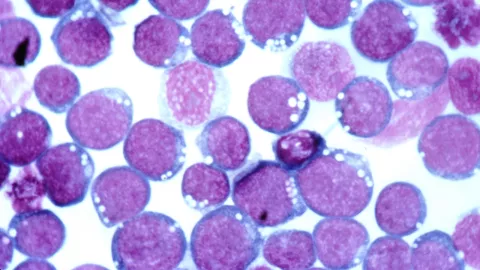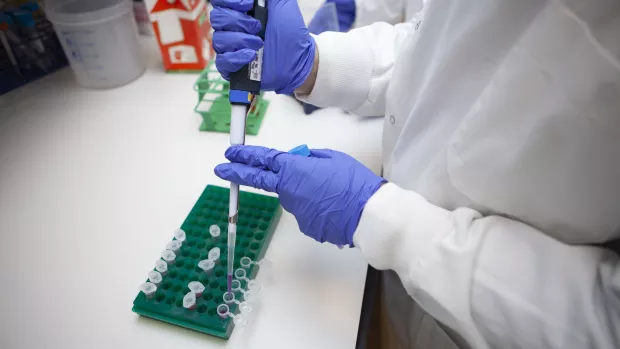
Behind the headlines: could an immunotherapy for EBV treat MS?
A new immunotherapy treatment in a trial for progressive MS hit the headlines recently. News reports say it could reverse or stabilise the progression of MS by targeting the Epstein-Barr virus (EBV). We looked behind the headlines to find out more.
The trial was already underway when a study provided the strongest evidence yet that EBV may play a key role in causing the development of MS. So attention is turning to whether treatments targeting the virus could alter the progression of someone’s MS.
Read more about recent research into EBV and MS
The experimental immunotherapy, called ATA188, involves transplantation of immune cells from donors without MS who have EBV, into people with MS. But these aren’t just any immune cells. They patrol the body specifically for EBV-infected cells and destroy them.
Initial results
ATA188 has recently been tested in a small clinical trial to see if it’s safe and has any potential benefit for people with progressive MS.
24 people had the treatment for one year at varying doses. And their level of disability was measured using the Expanded Disability Status Scale (EDSS). This mostly focuses on walking ability, but also measures other things like balance, eyesight and memory.
In most people with MS their EDSS score will go up over time as their disability progresses. But in some people it can remain stable for a long time.
Early data from the trial was presented by Atara Biotherapeutics at a conference last year. After 12 months on the trial, 5 people had worsening of their EDSS, 7 had an improvement, and 13 had no change.
Too early to draw any conclusions
This is a very early trial and final results haven’t been reviewed by other scientists yet. So it’s too soon to conclude that the treatment could have a positive effect on someone’s MS.
At this stage, research typically only includes a very small number of participants and is carried out over a short period of time. Many more years of research with a larger number of people would be needed to decide if the treatment could benefit people with MS.
Everyone on the trial knew they were having the treatment, which could change how they perceived their symptoms. And the trial didn’t include a placebo (dummy drug). So we can’t rule out the possibility that results could be similar in people who haven’t had the treatment.
A case of mistaken identity
Researchers are trying to find out what EBV does in the body that could lead to the development of MS. Recent research suggests proteins on EBV-infected cells and some proteins in our nervous system look very similar. So the immune system could attack both by mistake in people with MS.
Up to 90% of the population are infected with EBV, and it remains in our bodies once we have it. But not everyone with EBV develops MS. And it's too early to know if it could eventually be a treatment option for everyone with MS.
What’s next?
Atara are now conducting a larger trial which will initially recruit 80 people with progressive MS in the US and Australia. It’ll be carried out over 5 years, and half of the people on the trial will have a placebo. So it could provide stronger evidence on ATA188.
Find out more about the ATA188 trial
It’s great to see research into EBV and MS gaining pace. We need researchers and funders from around the world to come together to drive it forward.




